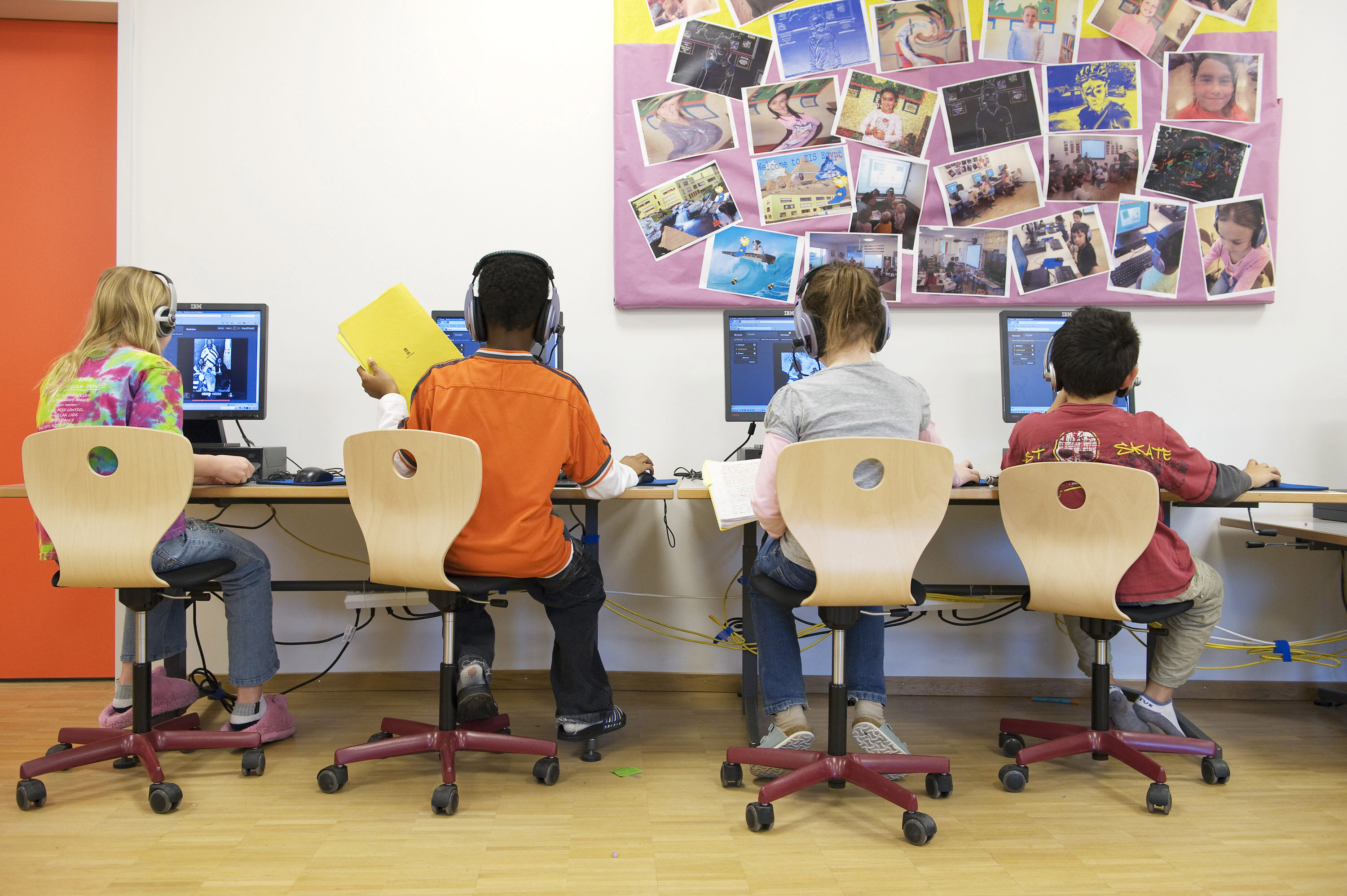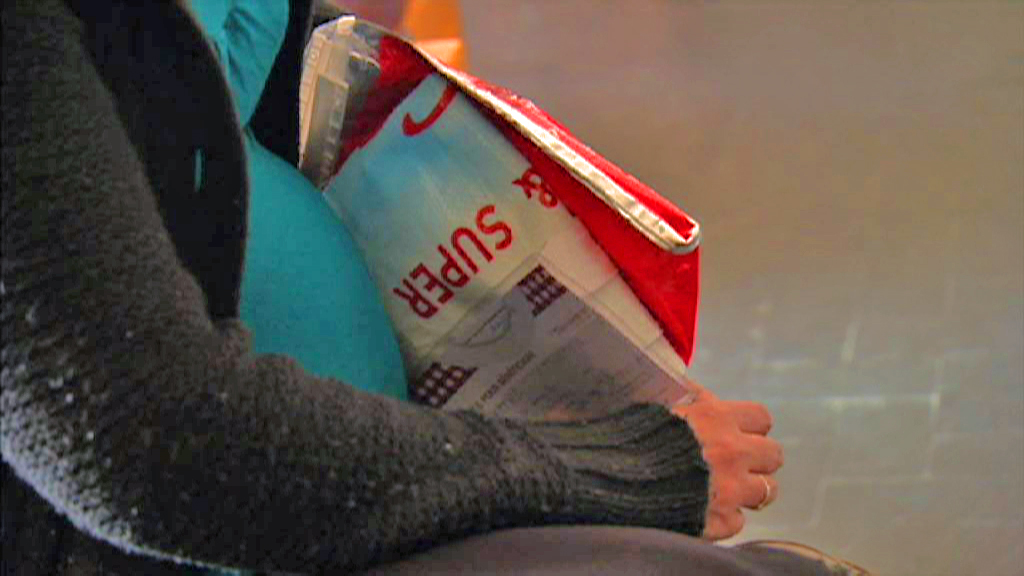
Nigerians assess the “best place to be born”

The year has begun with Switzerland able to boast that it is the best place to be born in 2013, according to an Economist magazine survey. Nigeria is considered the worst. So what do Nigerians living in Switzerland think of the rankings?
“It’s so great for kids here. In some Swiss primary school classrooms they have computers lined up for the children to use, while a Nigeria secondary school may have one computer for everyone if they are lucky,” said Michael*, a 40-year-old Nigerian who lives in Bern.
“The two countries really are incomparable.”
The father of two young children was granted asylum in Switzerland 15 years ago – something the vast majority of new Nigerian asylum-seekers – 236 a month in 2012 – can only dream of.
Switzerland’s social safety net is incredible, enthused the painter and decorator.
“If someone loses their job they can still pay their rent, but not in Nigeria. And if a child loses their parents in Switzerland, if they want to go to university in theory they can also do that as the state supports them,” he added.
Switzerland comfortably topped the Economist’s latest “lottery of life” index mainly thanks to its “boring stability” in today’s uncertain times, the magazine commented.
Remi Alao, a Nigerian entrepreneur who has lived in Switzerland for over 20 years, firmly believes that this solidity is Switzerland’s strength.
“The Swiss system is very organized and the Swiss have a passion for their country; everyone is conscious of the quality and image, that’s what’s missing in Nigeria,” said the 52-year-old.
“The Nigerians are more independently minded. But they are also more tied down by traditions.”
But the main problem of Africa’s third largest economy with its population of 175 million, is that it lacks leadership, he insisted: “Nigeria has a very good education system but it is not backed up by functional infrastructure.”

More
Wealthy but happy?
Reinvention
Since 1990, when he first arrived in Switzerland, Remi has had to work hard to fulfill his dreams. Married to a Swiss woman, the agriculture student’s initial plan was to continue his studies, but Zurich University refused to recognize his Nigerian degree, “they told me to start all over again”.
Unperturbed, he became a jack-of-all-trades: taxi driver, decorator, even supplier of limousines for the World Economic Forum. He meanwhile went back to university – in Britain and the United States – and this year completed a PhD in management consultancy at Phoenix University.
“Nigerians are very resilient people, they don’t give up,” he declared. He is one member of the diaspora who could help lift Nigeria out of last spot in the Economist ranking.
Remi organises computer courses for “lost youngsters” in Nigeria. He has also set up a renewable energy business back home and in September 2013 will help launch a car mechanic course in Lagos and Imo states to annually train 50 young people over a six-year period. The latter is supported by the Swiss government.
Switzerland
GDP per head: $77,340 (purchasing power parity: $52,080)
Projected growth: 1.2%
Inflation: 0%
Population: 8 million
Nigeria
GDP per head $1,560 (purchasing power parity: $2,190)
Projected growth: 6.7%
Inflation: 10.7%
Population: 174.5 million
“Not open enough”
“Nigerians all over the world are making a big impact. The diasporas are contributing hugely. The good ones are making a positive impact but a handful is giving us a bad name,” said Monica Emmanuel, a peace and conflict resolution research fellow studying for a PhD at the Geneva Diplomacy School.
Nigerians get bad press in Switzerland linked to drug dealing and illegal asylum. There are around 3,000 permanent and non-permanent Nigerian residents, mostly in Zurich, as well as Geneva, Bern and Biel. But the real figure could be much higher.
“Swiss people see a black man and when they find out he’s Nigerian they say he must be a drug dealer,” said the entrepreneur. “They tend to judge you easily without knowing you. The Swiss are friendly but not open enough. We live in a globalized world whether we like it or not. Other cultures are coming in but Swiss society is not prepared for this just yet.”

More
Poor – and expecting a child in 2013
“Affordable”
Despite Switzerland’s reputation as being one of the most expensive countries in the world, Michael argues that you can always find “affordable” goods if you look in the right places.
“You can survive on very little here, but in Nigeria people turn to crime,” he claimed. But Emmanuel, 39, who has been in Geneva for about two years, said many people she knew were struggling.
“I’ve met a lot of Africans – both legal and illegal – and their quality of life is very low as they don’t have the income to match the standard of living of Switzerland, particularly in Geneva,” she said.
Although she has travelled widely, Monica got a culture shock when she arrived, not helped by the language barrier and Geneva’s expensive accommodation hassles.
“But I now understand how to maneuver my way through the system so I’m happier,” she added. “One of the things I really appreciate here is the transport system which connects all parts of the country.”
Happy bunch?
In the United Nations’ first World Happiness Report, published in April 2012, Switzerland was ranked the sixth happiest nation, while Nigeria came in 100th position.
Nigerians can argue, however, that they are the most hopeful people. In 2010 a Gallup poll of 64,000 people from 53 countries ranked Nigerians as the most optimistic in the world.
But are the Swiss really happy?
“I don’t think so,” said Monica. “Despite having everything, I still see dissatisfaction. Society is very individualistic, everyone is living in their own world, occupied with work and then going home. There is no social life.”
Alao also had his doubts: “Happy is a relative term, but it’s about being able to achieve what you want freely. Switzerland is so structured that you can’t be happy as you always have to live a certain way. The Nigerians are happier in their ignorance as they are constantly denied the basic things and do not know what they are missing.”
*name changed

In compliance with the JTI standards
More: SWI swissinfo.ch certified by the Journalism Trust Initiative




























You can find an overview of ongoing debates with our journalists here . Please join us!
If you want to start a conversation about a topic raised in this article or want to report factual errors, email us at english@swissinfo.ch.